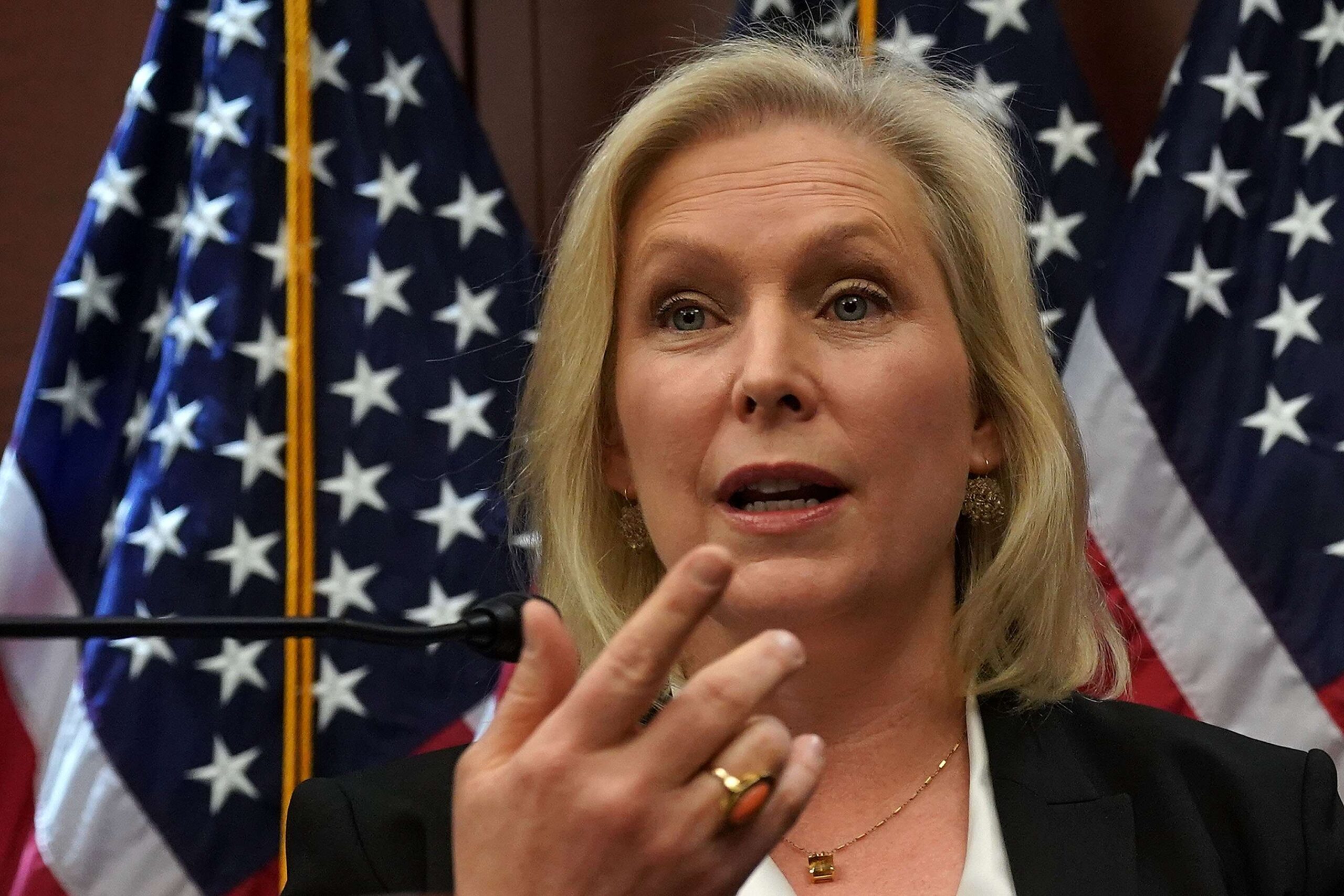New York Senator Kirsten Gillibrand, who has been fighting several battles in the country’s upper house since 2009, was in Puerto Rico a couple of weeks ago. The legislator assures that she returned with the ratification of several historical “debts” of the country with the island. She listened to the people. She met with elected leaders. And this week in conversation with El Diario, she acknowledged that she is ready to “oil the machinery even more” of several projects. Although there are two priorities: First, expand SNAP coupons. Second, boost employment and the economy with the installation of a large biotechnology center.
Both legislative projects depend on consensus in Congress. One is in “standby mode” for the next legislative sessions in 2024. Although there are very clear signs that there will be a bipartisan agreement. The other one already has the green light.
The legislator maintains that the draft Puerto Rico Food Assistance Equity Act, which she leads and was presented last March by a group of Democratic senators, has the advantage of having the support of Republicans, such as Jenniffer González Colón, the first woman to represent Puerto Rico before the United States Congress.
“We return with the conviction that it is very important for us to put energy into this program. Our legislation would address inequalities in food assistance to Puerto Ricans and would allow the island to fully participate in SNAP coupons, just like the rest of the Americans,” highlighted the member of the Senate Agriculture Committee.
Forty-two years after being eliminated from the benefits of what was then known as the Food Stamp Program (FSP), an eventual return of the Supplemental Nutrition Assistance Program (SNAP) for Puerto Rico is now firmly on the agenda of several legislators, so that the island is granted “full access” to these benefits.
“They were unfairly excluded from this nutritional plan in 1981, resulting in the loss of billions of dollars in assistance and reduced benefits for one million Puerto Ricans. This measure resulted in an immediate 25% decrease in nutritional aid. And that is our duty to reverse it. Not well. It looks more and more unfair as time goes by. I repeat, it is absolutely inexplicable at this moment,” the senator stressed.
From PAN to SNAP
Currently, US citizens living in Puerto Rico participate in the voucher program called PAN, but as a capped block grant, which is not based on the real needs of this population. This has led to lower nutritional benefits for island residents compared to residents of the 50 states and the District of Columbia.
Additionally, the PAN block grant has no equivalent to SNAP in the time of disasters. Which means that in the face of natural tragedies, new and separate appropriations from Congress are required, which can take months of waiting.
Currently, the PAN works as a block grant with a limit of about $2,000 million each year that is administered by the Department of the Family through Adsef (Administration of Socioeconomic Development of the Family).
PAN funds allow low-income residents on the island to obtain unprepared foods at pre-qualified stores and markets. To be eligible for the program, among other requirements, applicants must prove their income and household composition. Applicants must meet a net income limit, which varies depending on the number of people in the household.
Beneficiaries of this program are awarded 40% less money each month than their counterparts on the mainland. Currently, there are approximately 1.4 million participants in the PAN.
Basically, the Puerto Rico Nutrition Assistance Equity Act would establish a process for Puerto Rico’s transition from PAN to SNAP.
On the way… PRBIO Tech Hub
The senator stressed that thousands of Puerto Ricans residing in New York are “really concerned” about the well-being of their families and the economic future of that insular region of the United States: “I once again reinforced my conviction that as part of our country, we must build possibilities for greater growth.”
In fact, Gillibrand recalled that she also followed up on a policy that is already underway during her visit. The Biden Administration chose the island as one of the thirty-one technology and innovation centers in the country.
The national ‘Tech Hubs’ program is a development initiative designed to drive innovation and job creation, strengthening the capacity of each state or region of the country to create technology to improve American competitiveness.
From there, the project arose to make the Puerto Rico Technology Center (PRBio Tech Hub) a reality, which takes advantage of the island’s strength in the manufacturing of medical devices, to position it as a world leader in biotechnology to detect, treat and cure diseases.
This PRHub will leverage Puerto Rico’s existing assets, including pharmaceutical development expertise, to grow the country’s biotechnology supply chain and address public health challenges.
“We are proud to have fought to pass the CHIPS and Science Act that was the foundation of this program. We will continue our route to guarantee more federal resources to Puerto Rico. With this designation he will become a global leader in biopharmaceuticals and biotechnology, fast-growing sectors that are vital to our national security. This means more employment and development,” said Gillibrand.
